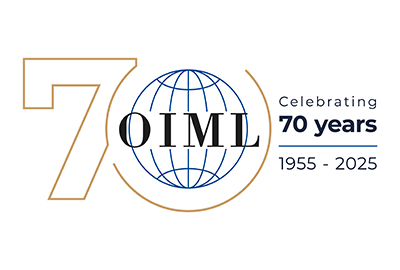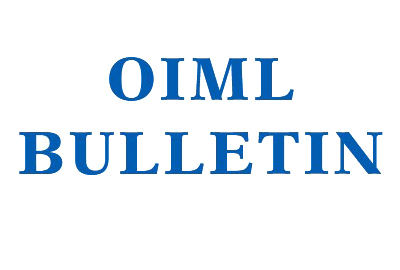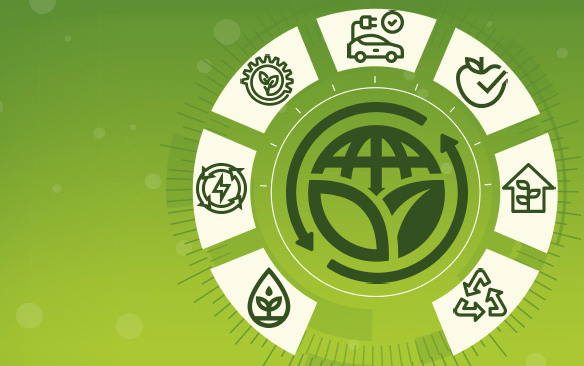Terms of Reference

Download the Terms of Reference as a PDF file: ![]()
Introduction
The Terms of Reference of the OIML Digitalisation Task Group (OIML DTG, hereafter termed âDTGâ) were developed by the DTG in accordance with CIML Resolution 2021/07 and based on the scope of Addendum 4.4 Establishment of a Digitalisation Task Group to the Working Document for the 56th CIML Meeting.
They were approved by the CIML at its 57th Meeting (Resolution no. CIML/2022/43) and published by the BIML on 14 November 2022.
Â
1 Purpose
1.1Â Â Â Â The DTG was established for the following purposes:
- to examine relevant matters, technological advances and potential impacts related to the digital transformation of legal metrology, that the OIML should respond to or address for the benefit of its Members and stakeholders;
- to support the digital transformation of legal metrology processes and services, and make respective proposals to the CIML, taking account of the main areas of the OIMLâs activities (technical work, OIML Certification System (OIML-CS), and activities in support of Countries and Economies with Emerging Metrology Systems (CEEMS)), and the interests of OIML Members and stakeholders; and
- to support, promote and coordinate the international harmonisation and implementation of digital transformation in legal metrology in close cooperation with representatives of international and regional organisations in the scientific and quality infrastructure (QI), based on the respective Joint Statement of Intent.
Â
2 Principal responsibilities and tasks
2.1Â Â Â Â The principal responsibilities and tasks of the DTG are:
- to define the operating rules and procedures;
- to define the DTG deliverables and outcomes for agreement by the CIML;
- to develop, in consultation with the International Bureau of Legal Metrology (BIML) and representatives from the main areas of the OIMLâs activities, proposals relating to the scope and content of the digital transformation of legal metrology processes and activities, including an outline work plan and most urgent actions;
- to identify, under the guidance of and with advice from the BIML, the necessary technological or financial resources required to implement the proposals;
- to consider and suggest additional resources and support, as needed;
- to achieve the outcomes set out above, promote the work plan in order to gain support from key stakeholder groups and existing QI networks; and
- to appoint sub-committees to consider or research a particular topic as and when required. Membership of sub-committees may comprise experts in a field, and do not need to be members of the DTG. The DTG shall set the rules of membership and any voting rules that may be required for the sub-committee. Sub-committees shall report to the DTG.
Â
3 Membership
3.1Â Â Â Â Membership of the DTG includes:
- appropriately experienced individuals nominated by OIML Member States and Corresponding Members, International and Regional Organisations in Liaison;
- representatives from the CIML Presidency; and
- representatives from the BIML.
3.2Â Â Â Â In order to coordinate the work of the DTG with other core OIML activities, if these activities are not otherwise appropriately represented, experts representing the OIMLâs technical work, the OIML-CS Management Committee (MC) and the OIML CEEMS Advisory Group (CEEMS AG) may be invited to serve as co-opted members.
3.3Â Â Â Â DTG members are expected to contribute on specific matters as required to execute the responsibilities as set out in the present Terms of Reference. This input will be through participation in meetings, contributions to draft papers and reports, participation in subcommittees and other means, as appropriate.
3.4Â Â Â Â Members of the DTG shall participate in DTG meetings. However, if a member is unavailable for a meeting, they may designate a deputy to represent them at that meeting. Deputies are to be appropriately experienced individuals and are expected to have an understanding of the role and current activities of the DTG.
3.5Â Â Â Â Members of the DTG may invite observers to DTG meetings or sub-committee meetings. Observers shall only observe the meeting (i.e. they may not participate).
3.6Â Â Â Â The DTG secretariat will be resourced as proposed by the DTG.
Â
4 Chairperson and Deputy Chairperson
4.1Â Â Â Â The DTG will be chaired by the Chairperson or by the Deputy Chairperson.
4.2Â Â Â Â The Chairperson and a Deputy Chairperson will be nominated from amongst the representatives from OIML Member States, and appointed by the CIML, according to the procedure outlined in Annex 1.
4.3Â Â Â Â The Chairperson may establish a Steering Committee in order to provide him or her with advice and support, in particular for the preparation of meetings, papers and reports.
4.4Â Â Â Â The Chairperson or Deputy Chairperson may invite guests to DTG meetings. AÂ guest may be an expert invited as a guest speaker or a representative from a closely related international or regional organisation.
Â
5 Meeting frequency and organisation
5.1Â Â Â Â The DTG will meet a minimum of four times per year, with online meetings being the preferred/default mode of interaction.
5.2Â Â Â Â Meetings will be organised by the DTG Chairperson, with support from the secretariat and the BIML.
Â
6 Duration of the DTG
The DTG will continue to exist until the work is handed over to a new or existing body, or the CIML decides to disband the Task Group.
Â
Annex 1
Appointment of the Chairperson
and Deputy Chairperson
Â
A.1Â Â Â Â Â Â Â DTG Chairperson
A.1.1Â Â Â Â Â The DTG Chairperson is nominated from amongst the DTG members from OIML Member States and shall be appointed for a term of three years by the CIML.
A.1.2Â Â Â Â Â The DTG Chairperson is eligible for re-appointment for one further term of three years. If at the end of a second, or a subsequent, term there are no new candidates nominated for appointment to the position of DTG Chairperson, the DTG may propose to the CIML that the incumbent DTG Chairperson be appointed for a further term of three years.
A.1.3Â Â Â Â Â In the event that the DTG Chairperson is unable to fulfil his/her duties, the DTG Deputy Chairperson shall substitute for him/her.
Â
A.2Â Â Â Â Â Â Â DTG Deputy Chairperson
A.2.1Â Â Â Â Â The DTG Deputy Chairperson is nominated from amongst the DTG members from OIML Member States and shall be appointed for a term of three years by the CIML.
A.2.2Â Â Â Â Â The DTG Deputy Chairperson is eligible for re-appointment for one further term of three years. If at the end of a second, or a subsequent, term there are no new candidates nominated for appointment to the position of DTG Deputy Chairperson, the DTG may propose to the CIML that the incumbent DTG Deputy Chairperson be appointed for a further term of three years.
Â
A.3Â Â Â Â Â Â Â Procedure for nominating the Chairperson and Deputy Chairperson
During a DTG meeting, the candidates for each position will give a short presentation of their candidacy. The selection is then processed, by secret ballots, as follows:
- As long as there are two candidates or more:
- DTG members from OIML Member States[1] vote for one of the candidates, and the candidate who obtained the smallest number of votes is eliminated;
- in the case where two candidates share the lowest number of votes, the candidate who was most recently appointed as a DTG member is eliminated.
Note: If one of the candidates receives a number of âyesâ votes greater than 50Â % of the number of DTG members from OIML Member States, then that candidate is selected for nomination.
- If there is only one candidate or when only one candidate remains, DTG members from OIML Member States1 vote âyesâ or âabstentionâ and the candidate is selected for nomination if he/she obtains a number of âyesâ votes greater than or equal to 50Â % of the number of DTG members from OIML Member States.
- In the case where the remaining candidate has not obtained the required 50 % majority:
- for the selection of the DTG Chairperson, the DTG Deputy Chairperson becomes Acting DTG Chairperson until the next DTG meeting, at which time a new selection is organised;
- for the selection of a DTG Deputy Chairperson, the position shall remain vacant until the next DTG meeting, at which time a new selection is organised.
- The selected candidate (nominee) is then proposed to the CIML for appointment.
- Where the positions of DTG Chairperson and DTG Deputy Chairperson are both vacant, should both candidates (nominees) fail to receive the required 50Â % majority, the representative of the CIML Presidency shall assume the role of DTG Chairperson (ex officio) until such time as a candidate (nominee) achieves the required 50Â % majority.
Â
[1] Where there is more than one DTG member from an OIML Member State, only one DTG member from the OIML Member State may vote.






